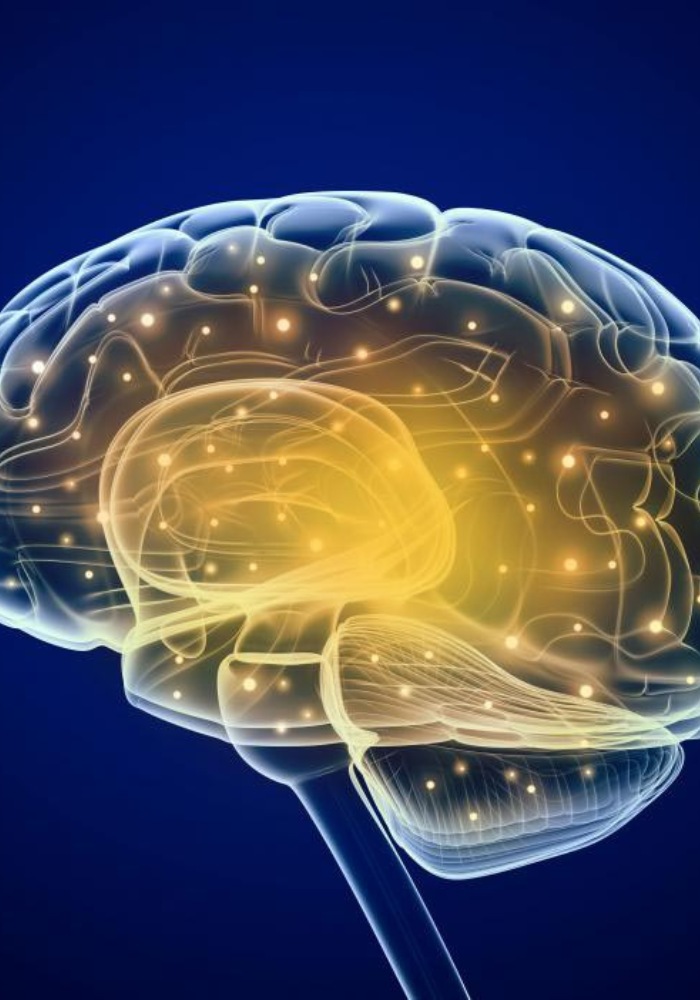
Transcranial magnetic stimulation (TMS) has been gaining popularity as a possible treatment for sleep disorders. TMS Institute of Arizona is committed to helping patients of all ages address and correct sleep disorders. We are an outcome-driven clinic led by triple board-certified Dr. Ruchir P. Patel, and treatment begins with the right diagnosis. Therefore, your consultation begins with a meeting with a sleep expert who can diagnose sleep problems. It is just as important to make the right diagnosis as it is to get the right treatment. TMS might be the right treatment for you.
Various mental disorders, such as depression, can be treated with TMS quickly and non-invasively. Recently, a myriad of studies have shown that it can also help with sleep problems. During sleep, cortical neurons experience nearly perfectly synchronized oscillation cycles, which cause the largest spontaneous waves to be recorded in an EEG. TMS can also reliably trigger slow spindles and waves when subjects are asleep, according to recent research published in Proceedings of the National Academy of Sciences (PNAS). This “evoked” slow wave “leads to a deeper sleep and an increase in EEG slow-wave activity (0.5-4.5 Hz), which plays a role in brain regeneration and memory consolidation.”
Sleep Improvement with Minimal Invasion
As a non-invasive treatment, TMS quickly became popular. Researchers found that TMS results are nearly identical to spontaneously occurring slow wave results. A coil is placed on the head, creating a magnetic field that can be switched on and off quickly. Subjects in the research study reported feeling little, if anything at all-which is why they were able to sleep through the treatment without any sleep aids. Anyone who has had an MRI knows that you do not feel anything during these tests because magnetic fields are similar to those produced by an MRI machine.
Although TMS affects the brain, it does not affect the entire brain. Even then, the fields are just below the treatment coil, reaching only 2 – 3 centimeters into the direct brain. A small electric current is created as the fields move into the brain. Various neurotransmitters such as dopamine, serotonin, and norepinephrine are released when these currents are activated. An imbalance in brain chemicals is often the cause of depression, so TMS was initially targeted as a depression treatment. We are now seeing similar results for certain sleep disorders as well.
TMS: What You Need to Know
For optimal results, most patients need several TMS sessions, which are usually fast enough for lunch-hour appointments. Routine “maintenance” sessions may be recommended based on your sleep disorder, severity, and how your body responds to TMS. Because TMS is painless, non-invasive, and requires no medication or daily use of at-home tools, it quickly became a favorite tool for all kinds of patients.
According to a recent study, those with chronic, ongoing insomnia have abnormal MRI results. The most common sleep disorder that TMS can treat is insomnia. There are many factors that can contribute to chronic insomnia. Most often, cognitive behavior therapy (CBT-I) is combined with other treatments, including TMS. If CBT-I has failed or did not comprehensively work for your condition, you may be a good candidate for TMS. It is common for people to experience acute, short-term episodes of insomnia (such as jet lag), but chronic insomnia leads to long-term sleep deprivation that negatively impacts your entire life on a physical, social, emotional, and mental level. The effects of sleep deprivation on physical and mental health are numerous.
Get Help for Your Insomnia
Chronic insomnia can affect anyone, but it is most common in adult women. If you are looking for a medication-free, non-invasive way to treat your insomnia, you can find help here. With a clinical psychologist on staff who specializes in CBT-I, the Insomnia and Sleep Institute provides unparalleled staffing levels. As voted by his peers, we have been home to the “Top Doc” in the region for the last six years, and are proud to set the gold standard in sleep medicine across the state.
Our clinic does not require referrals for treatment. You can restore your health more quickly if you seek help for your insomnia as soon as possible. Get in touch with TMS Institute today to schedule your consultation for insomnia treatment. For the quickest response, you can call the office or start an online chat during business hours.












